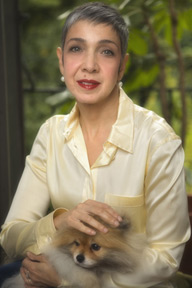The picture book market is in the doldrums. Publishers report that sales are flat and disappointed booksellers must box up the brightly colored, lavishly illustrated volumes - unopened, unread, and most dispiriting of all, unloved - and send them back to the warehouses from whence they came.
And as if this news weren't bad enough, one of the chief reasons cited for the downturn is even more discouraging. It seems that parents - the ones who actually plunk down the money for these books - are a major factor in the picture book's current decline. Parents have started urging first graders and even kindergarteners to leave picture books behind and move on to more text-heavy chapter books. Why? Because with the pressures of increasingly rigorous standardized testing looming on the horizon, parents are eager - some might even say desperate - for their children to get a leg up on the academic ladder. And so, the pretty pictures and lilting rhythms get pushed aside for words, words and more words.
Now don't get me wrong. I love words. In fact, I have made a life's work out of writing them, both for children and adults. But as both reader and writer, I find the elevation of the chapter book at the expense of the poor, maligned picture book an alarming trend. And I pity the children whose benighted parents are so quick to jump on this educational bandwagon.
Picture books, I want to tell them, are not less than, an inferior stepping stone on the way to real books. On the contrary, picture books are the first point of entry into reading for almost all children, the perfect marriage of word and image, sound and sense, ideally designed to stimulate the minds and hearts of the youngest readers.
Picture books have a talismanic power; we read them when the templates of our souls are still wet, still soft. They become embedded in who we are, and who we might one day become. The best picture books help shape readers, not just in the years when are first enjoyed, but forever. A child who demands that her tattered copy of "Olivia" be read to her again - again and again - is a child who will want to read other, more challenging books as well. The point is to develop the love for reading; once that love is there, securely and firmly rooted, the rest will take care of itself.
I have written nineteen books for children; I believe the strongest of these are my three chapter books, but not because I think chapter books are the inherently superior form. It's just that I can't seem to write with the economy and elegance of the very best picture books; whatever gifts I have seem to require the use of more words.
Even the three picture books I have written (all biographies) tend to be text heavy, and so have never achieved the satisfying symmetry of, say, "The Best Loved Doll" or the antic charm of "Chicka Chicka Boom Boom." How I wish they did. If I could write picture books that achieved that level of grace, I would joyfully apply myself to that calling because I believe it's one of the highest callings there is. How wonderful to be among those who lead children into the magic realm of reading. How blessed to be among those who form part of a child's earliest literary memories.
And why must it be an either/or proposition? Isn't there room in the library and classroom (to say nothing of the imagination) for both? Even when my daughter had entered middle school, she loved returning to her favorite feisty picture book heroines, Eloise and Madeline. And guess what? I did too. Those spunky gals formed part of my own literary education and reacquainting myself with them was nothing less than a homecoming.
Moreover, there are plenty of picture books - including some I have written - that appeal directly to a middle-school audience. Biographies of figures like Helen Keller, Harriet Tubman, Nelson Mandela, Anne Frank, Eleanor Roosevelt and Margaret Mead are not for the pre-school set, not by a long shot. I have presented these books to children in the fifth and sixth grades with excellent results; the kids were as responsive to the pictures as they were to the words.
So please, parents, think long and hard about the literary agenda you are imposing on your children. Let them have their beloved picture books for as long as they want them.  They won't be losing a thing, and what they gain - both as budding readers and blossoming students of life - will be more precious that you may ever know.
They won't be losing a thing, and what they gain - both as budding readers and blossoming students of life - will be more precious that you may ever know.
Yona Zeldis McDonough has written nineteen books for children, the most recent of which, "The Cats in the Doll Shop", came out from Viking in November. She is also the author of four novels for adults, the editor of two anthology collections and her essays, stories and articles have appeared in many national and literary publications. Please visit her website at www.yonazeldismcdonough.com.